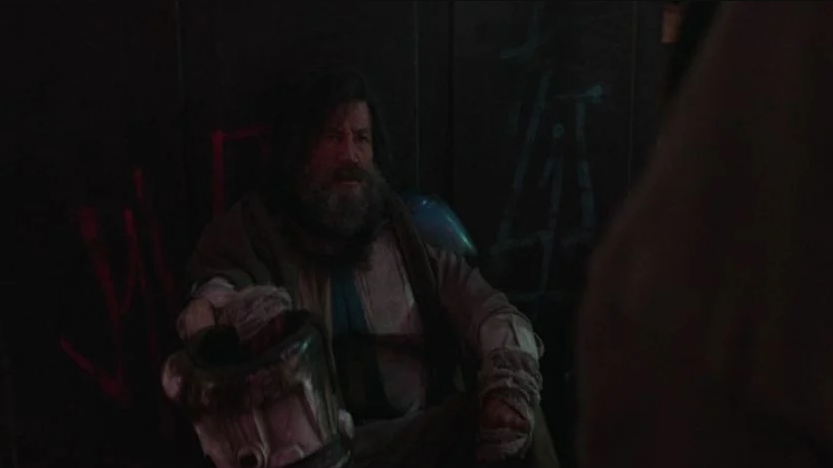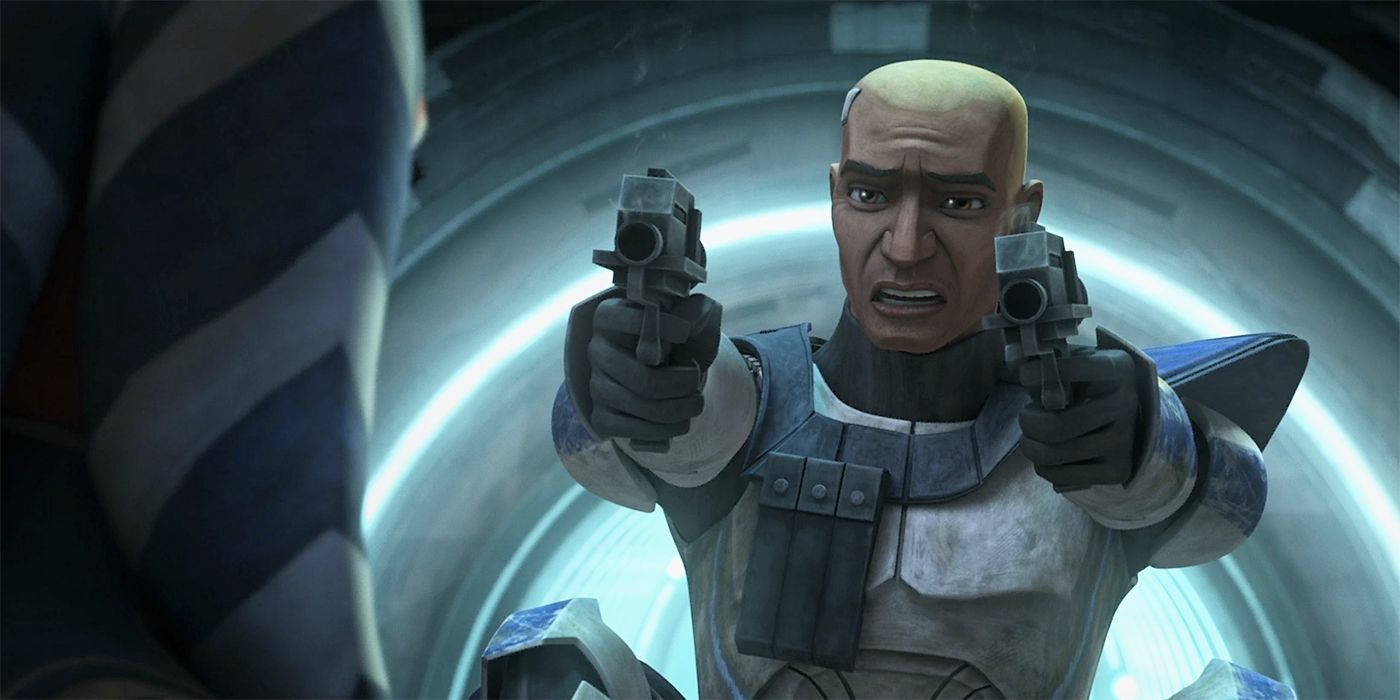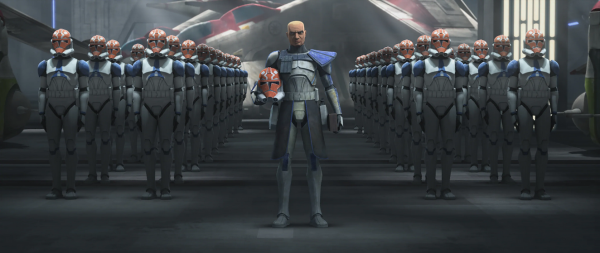Star Wars at its core is an opera, chronicling a grand scale epic over the course of several generations of war in one overarching saga. As an opera, Star Wars is also abundant with tragedies that follow the rise and fall of heroes and villains whose suffering enhances the emotional and thematic drama of its storytelling. Tragedies like that of a chosen Jedi padawan’s torturous turn to the dark side, the fall of a peaceful galactic republic into a tyrannical empire and of course the tragedy of Darth Plagueis the wise.
Of all of Star Wars’ ill-fated figures, the saga’s most tragic story belongs to not just one character, but an entire army’s worth. Through devoted characterization and development in Dave Filoni’s The Clone Wars and Disney+’s Obi Wan Kenobi, the Clone Troopers have been reinvented from nameless toyetic enforcers in George Lucas’ prequel films to an important and sympathetic fixture in the overarching Star Wars tragedy.
Upon their initial debut in 2002’s Episode II: Attack of the Clones, the Clone Troopers, cloned from Temuera Morrison's Jango Fett, are narratively and aesthetically positioned to be the proto-Imperial Stormtroopers, a countless legion of helmeted and armor-clad soldiers who enact the will of the ruling galactic government. While not much is given to them in the way of character, their creation was a key plot point in the ignition of the Clone Wars and set up how the insidious Chancellor Palpatine (Ian McDiarmid) plans to transform the Galactic Republic into the Empire. At face value, the Clones are conceived to be merely pawns of an ominous evil plan and serve as a means to a narrative end, while looking cool while doing it.
In The Clone Wars, the Clones’ presence and agency in the war is expanded, giving us development that fleshes out the men behind the armor and unveils a deeper tragedy behind their existence. The series offers compassionate insight into what it is to be a soldier of the republic’s grand army and the different perspectives into what it’s like to fight the war. Despite being of the same body and militaristic breeding, each of the clones is different and evolves into their own identities and opinions on the war and its politics. Given only numbers at birth, the Clones assign each other nicknames to inhabit a sense of individuality among the thousands to identical faces. From Captain Rex and Commander Cody, to the individualist Domino Squad and Commando Gregor (all of which voiced by Dee Bradley Baker), the Clones struggle over the course of the war not only to win the day against the separatists droids, but for identity in a galaxy that sees them only as expendable numbers.
The Clones are genetically born and bred to die for a war that has nothing to do with them and the circumstances and frequency of their creation is no different from the droids they fight. Well knowing this, the Clones’ biggest fight was one for their own autonomy and independence as human beings, not just genetic killing machines. The sentiment of “a good soldier follows orders” is echoed amongst the clones throughout the series and illuminates their internal dilemma of seeing themselves as soldiers or men first. There are instances in which a Clone’s very existence is called into question, judged by their usefulness on the battlefield, such as the case for the malformed "99", or their resistance to fight in the war altogether, as with deserter Cut Lawquane. There have been Clone deserters and dogmatic loyalists that have demonstrated both extremes of the clones fighting against what they were created to be and who they have grown to become.
At the height of the Clone Wars and the Clones' continued fight for individuality, the call came down from Palpatine himself to “execute Order 66”. Order 66 is far and away the most tragic moment in all the saga as it reshaped the galaxy forever and nearly eradicated the entire Jedi order. While Episode III: Revenge of the Sith alluded to the Clones having no qualms in following the order, The Clone Wars and The Bad Batch illustrated the regret and confusion of Order 66 as a dark day for the clones as well, being given no choice but to betray the only other beings in the galaxy that saw their lives as men and not expendable war machines. In the waning days of the war, it is revealed that the Clones are programmed with a biological inhibitor chip that prohibits them from disobeying the ultimate order they were created for. While a number of Clones were able to have their chips removed or be unaffected by the order, the Clones that fought alongside the Jedi and defended the galaxy had become heartless pawns that heralded the dark times of the Empire, indistinguishable from the enemy droids they fought for years.
After the war, the Clones’ usefulness and good favor with the government that bred them for war ran out as the Empire began to enlist Stormtrooper recruits and end Clone production, destroying the only home the clones had ever known on Kamino with great prejudice and effectively ending their existence altogether. This comes to a head in the appearance of a homeless 501st clone veteran begging for credits in Episode 2 of Obi Wan Kenobi. In the eyes of the Empire, the Clones were solely a pawn in their gamble for power and discarded them as soon as they were not needed, leaving a practical generation of brothers out in the cold with not purpose or place to call home.
The drama that characterizes Star Wars is that of interpersonal and family tragedies; friends becoming enemies, fathers fighting children, etc. What makes the tragedy of the Clone Troopers especially heartbreaking is of how gradual and systematic it was in the politics of the war. Regardless of why or how they were made, the Clones were the faces of heroism in the galaxy, fighting the good fight and protecting the peace. Although given a job to do, the Clones as living beings found purpose in their service and sought to forge their own identities, fighting for the day they could live as free men. Through just the will of a great evil, the Clones as a race of brothers were phased out just as heartlessly as the Jedi themselves and were left no free lives to call their own. In the spirit of how Star Wars reflects our real-world history and politics, the tragedy of the Clone Troopers as people comes to reflect the toils war wages on the men who fight them.

.jpg)


